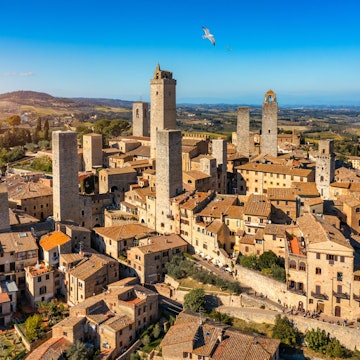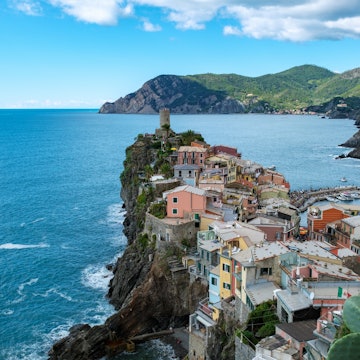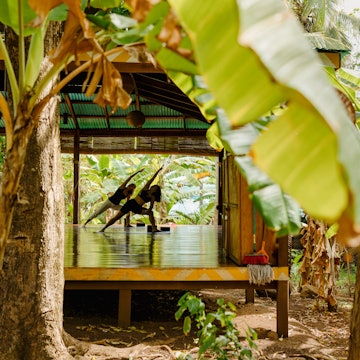
With the Thomas Cook collapse, what next for the package holiday?

Sep 23, 2019 • 4 min read

The collapse of Thomas Cook may be indicative of turbulent times in the travel industry © Getty Images
With the collapse of Thomas Cook, is the traditional European sun-sea-and-sand package holiday doomed? It’s almost unbelievable to imagine a the world of travel without Thomas Cook, one of the stalwarts of the package and low-cost tourism industry.

Thousands of holidaymakers stranded after Thomas Cook collapse
The idea of such a historic company disappearing is a warning that others may follow suit during turbulent times for the travel industry, with oil volatility, ongoing Brexit uncertainty and – as the result of ordered Boeing 737 MAX aircraft being unavailable during its grounding – capacity concerns for next summer’s schedules.
The European package tour has been an iconic option for decades. Seven nights with the family in a bucket-and-spade destination, lads-or-lasses holiday somewhere more lively or quiet pensioners' holidays in the sun to escape the depths of winter: northern Europeans have been heading south for sun in droves for nearly 70 years. Reform of the way non-scheduled airlines – in other words, charter operators like Thomas Cook – were regulated in the mid-1950s led to a boom in sunseekers everywhere from Helsinki to Hartlepool travelling to sunnier climes.

What has changed for package holidays?
The wide availability of the Internet starting in the early 2000s drove several changes to the fundamental structure of the industry, just as the lustre was starting to wear off the popularity of the package holiday after the status-symbol-driven 1980s and 1990s.
For a start, the low-cost carrier boom that had started in the mid-1990s went digital. Airlines including Ryanair and easyJet, broke the binary: you no longer had to choose between a scheduled airline like British Airways or Air France or a package tour operator like Britannia or Monarch. They also prompted established carriers to cut costs and offer cheaper packages of their own, either directly or through subsidiaries like Finnair’s Aurinkomatkat tour operator.
The digital revolution also enabled companies other than the traditional tour operators to thrive – the dotcoms that started to dominate (and still do in many areas), started offering package tours in conjunction with a low-cost airline. Your author remembers a delightful snowy January package booking from London to Venice (via Treviso) flying Ryanair and staying at a local pensione bed-and-breakfast; this change to the entire way the model works rather took the traditional tour operators by surprise.
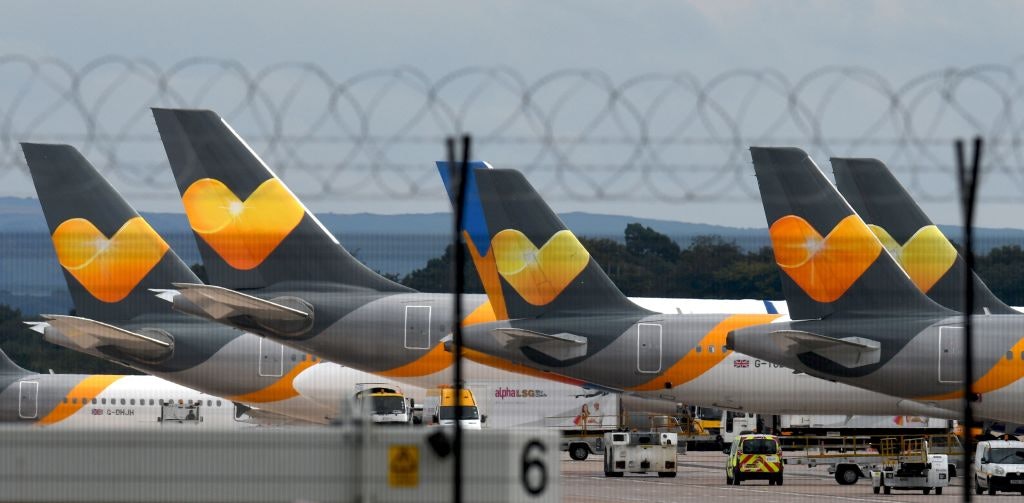
Are travellers still going on package holidays?
The package holiday was and is still big business. Touring the airport at Gran Canaria earlier this year, airport management told me that their working assumption based on the number of tour buses using the airport is that some two fifths of travellers using the airport are still arriving part of a package holiday to the many resorts around the island.
This is underscored by the fact that priority at pick-up and drop-off is given to the many brightly branded coaches collecting up to fifty passengers at a time: the parking lane directly next to the terminal is for buses, not car drop-off, and an impressive corkscrew brings these coaches directly down to the arrivals parking area to pick up the next load. Indeed, anyone driving into the tourist centre of Maspalomas on Gran Canaria will probably drive along the Avenida Touroperador Tui — a sign of both the historic and ongoing importance of these companies to the island.
With a trend towards more specialised, intergenerational and group travel, and particularly since the rise of Airbnb and its competitors in the last decade, travellers are more used to booking their own accommodation and flights separately. But, within the EU and especially from the UK with its ATOL booking protection for package holidays, will the high-profile collapse of Monarch and now Thomas Cook affect the number of passengers booking packages?
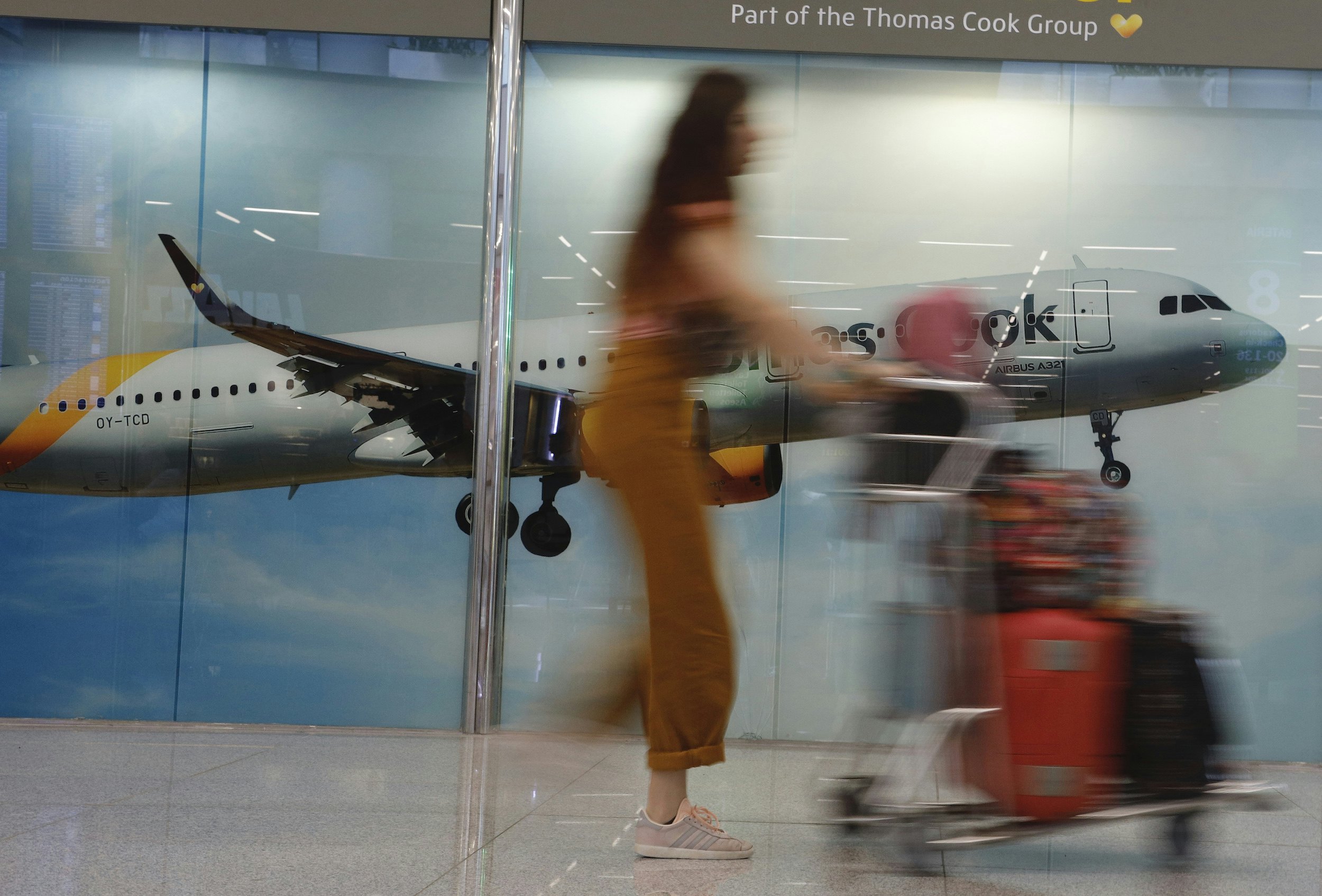
What is the future of package holidays?
It seems certain that there is still a role for package holidays in the travel of the future, but perhaps not as we know them. As much as there is a clear trend towards authentic experiences for many travellers, there’s a competing trend where sometimes it’s just nice to have everything done for you on a trip, especially for those of us who are the unofficial family travel agents.
Moreover, Airbnb has been something of a victim of its own success: there is backlash from communities turning into largely unregulated tourist hotspots and, anecdotally at least, there seems to be an unpleasant trend of late cancellations by hosts, leaving travellers in the lurch.
If I had to look into a crystal ball, though, I’d predict that the remaining tour operators will become more nimble and specialised. It strikes me that there is little innovation in, say, package tourism friendly to the LGBTQIA+ market, Muslim families who require privacy for hijab-free holidays, and to the ever-growing premium-but-cost-conscious retiree travel market.
Nor are there many options for larger accommodation suitable for intergenerational travel: separate bedrooms for granny and grandpa with fully accessible showers, and enough flexibility for extended family to be connected via adjoining doors between multiple single units, for example.

So raise a glass to Thomas Cook and its successors, and spare a thought for the many thousands of dedicated and hardworking employees who find themselves facing uncertainty about their jobs, as well as the travellers whose holidays are ending in stress or in jeopardy.
John Walton is an international aviation journalist, follow him @thatjohn.
Make sure you're ready for anything with travel insurance from our trusted partners.








